Here's the text.
Sea Environment in Yokohama
Last Updated April 5, 2021
Changes in water quality at Yokohama Port
Before the high economic growth, coastal fisheries and seaweed cultivation were active in the sea of Yokohama, and the scenery of seaweed drying was seen in various places.
Later, during the period of high economic growth, the close relationship between the sea and rivers and people's lives was lost, and at the same time, the water quality deteriorated due to the inflow of domestic wastewater and industrial wastewater.
The water quality of Yokohama Port has improved significantly due to the development of public sewers and regulations on factory drainage, but in recent years it has been flat, and issues such as red tide, an oxygen sea area, and odor generation remain.
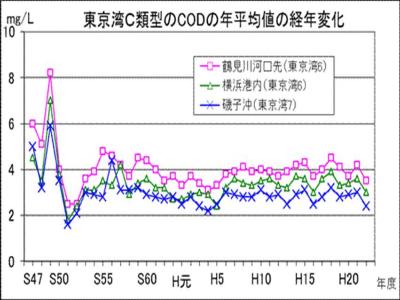
Rich sea-building business
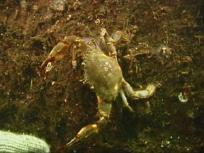
Together with citizens, businesses, and local governments in the Tokyo Bay basin, we are promoting the sea where creatures are rich and highly purifying (seas where creatures are diverse) and the `` creation of the future of Yokohama '' loved and loved by everyone. doing.
About the red tide
Red tide is a phenomenon in which seawater discolors due to abnormal growth of plankton. When the ocean is polluted and nutrients such as phosphorus and nitrogen increase in the sea, plankton increases abnormally due to temperature and other effects. Seawater may turn reddish brown or orange due to the growth of plankton, and sometimes turn blue-green. This kind of plankton is called red tide plankton.
About the details of the red tide
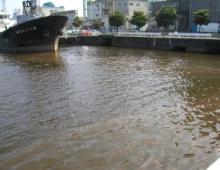
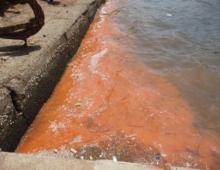
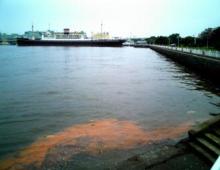
Inquiries to this page
Environmental Science Research Institute, Environmental Conservation Department, Green Environment Bureau
Telephone: 045-453-2550
Telephone: 045-453-2550
Fax: 045-453-2560
Email address: mk-kanken@city.yokohama.lg.jp
Page ID: 323-267-429







